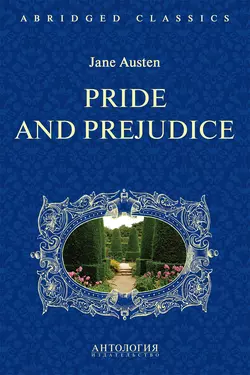Pride and Prejudice. Адаптированная книга для чтения на английском языке. Intermediate

Джейн Остин
Тип: электронная книга
Жанр: Зарубежная классика
Язык: на английском языке
Стоимость: 190.00 ₽
Статус: В продаже
Издательство: Антология
Дата публикации: 29.12.2024
Отзывы: Пока нет Добавить отзыв
О книге: По мнению Вальтера Скотта, известного шотландского писателя и современника Джейн Остин, писательница обладала поразительным даром сделать увлекательными даже самые заурядные и обычные характеры и события. Роман Гордость и предубеждение, раскрывающий обычный уклад жизни в дворянской и буржуазной среде Англии начала XIX века – это психологически тонкое, пронизанное изящным юмором, описание общечеловеческих вопросов нравственности, воспитания, отношений в семье и браке, что делает книгу современной и в наши дни.